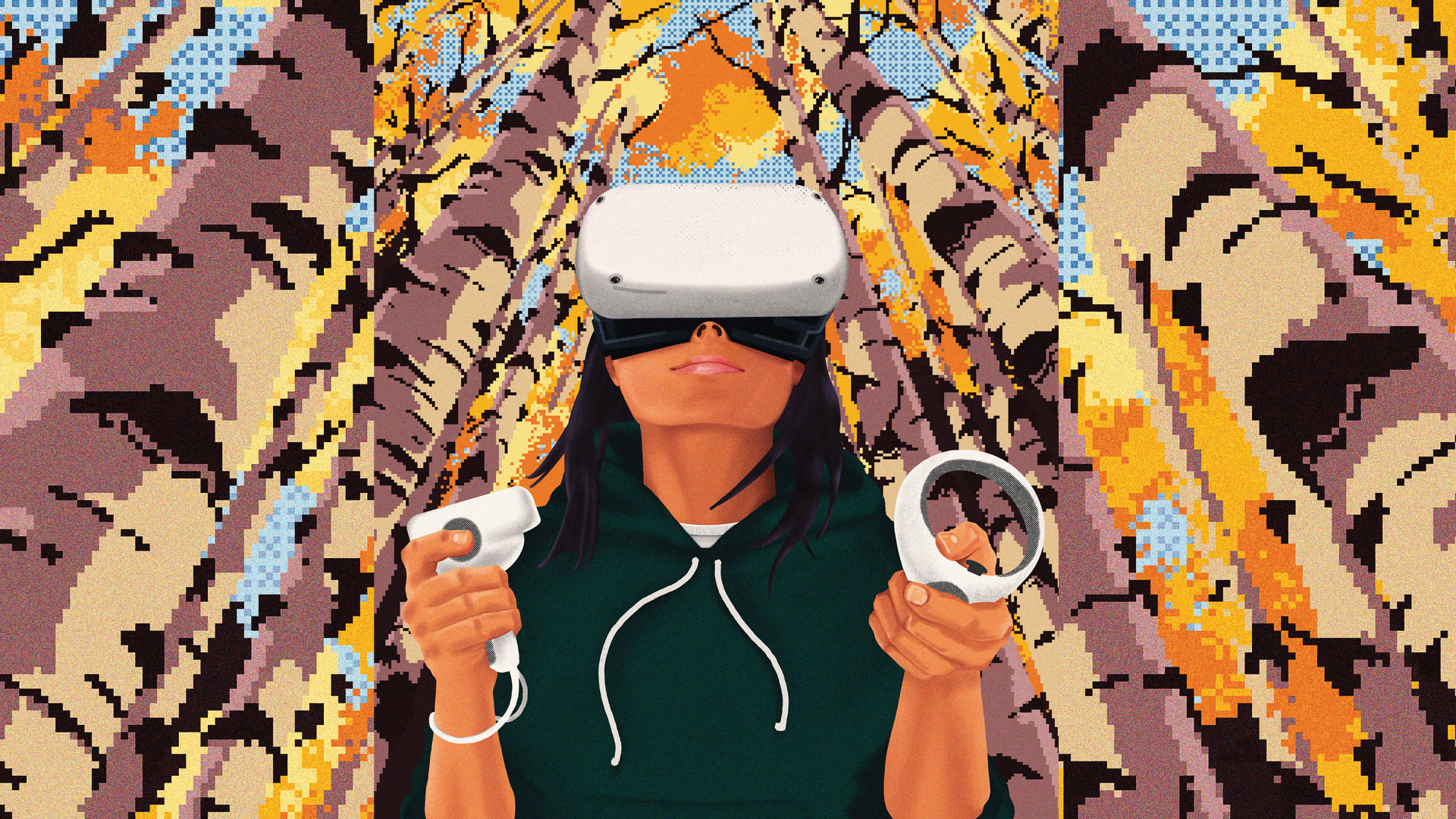By: Ekua Quansah & Elissa Strome
6 Jun, 2023

Advancements in artificial intelligence (AI) have the potential to change the world we live in, delivering social, economic and environmental benefits to Canada and around the world. They also carry potential for harm, if not created and implemented responsibly. As AI-based tools, products and services become increasingly sophisticated and ubiquitous, it is more crucial than ever that the humans behind AI technologies actually represent the diverse communities they serve.
Indigenous peoples have long been excluded and underrepresented in science, technology, engineering and mathematics (STEM) education and training, despite their contributions to STEM knowledge. Unfortunately, to date, the field of AI has been no exception. As a leading international research organization and the leader of Canada’s national AI strategy, CIFAR is committed to being a leading actor in increasing equity, diversity and inclusion (EDI) in STEM. And, in our roles as CIFAR’s Head of EDI and Executive Director of the Pan-Canadian AI Strategy respectively, this is of foremost concern to us.
With the calls to action from Canada’s Truth and Reconciliation Commission in mind, we set out to understand the barriers faced by Indigenous students to STEM education and training.
In exploring CIFAR’s opportunity to contribute to increasing Indigenous student participation in AI, our guiding principle was, “Nothing about us, without us” — a rallying cry long-used by marginalized groups worldwide. It reminds us that those who are most affected by societal inequities must lead and be at the centre of any actions to address those inequities. We met with Indigenous leaders in STEM and those already delivering STEM and AI programming to Indigenous and non-Indigenous students across the country to understand the challenges and where CIFAR might be able to make a difference.
In parallel, we participated in the Public Policy Forum’s Putting Reconciliation into Practice: Inclusion and Action Leadership program to deepen our understanding of best practices to advance reconciliation, both personally and professionally. We then completed the First Nations Information Governance Centre’s Fundamentals of Ownership, Control, Access and Possession (OCAP) course — to make sure that we had a foundational understanding of the principles that determine how First Nations’ data and information should be collected, protected, used or shared.
Through deepened knowledge and meaningful collaboration with partners, and in consultation with Indigenous and AI leaders, we developed a three-part plan to increase Indigenous student participation in AI and launched a pilot program in summer 2022. Our plan included: 1) providing full funding of the direct and indirect costs for all Indigenous students accepted into any NextGen AI Training Program delivered by CIFAR and our partners across the country; 2) working with an Indigenous-led team to develop new curriculum to explore Indigenous perspectives on AI for inclusion in all of our NextGen AI Training Programs; and 3) working with partners to deliver AI training to Indigenous youth in their communities.
A key partner in our efforts to deliver AI training to Indigenous youth is Actua, one of Canada’s leading STEM outreach and engagement organizations. Actua’s National Indigenous Youth in STEM (InSTEM) program is Canada’s first national program designed to remove barriers to Inuit, Métis and First Nations youth engagement in STEM through land-based education.
“It is critical that Indigenous voices are included in all aspects of the AI space,” shared Doug Dokis, Director of the National InSTEM program and member of the Dokis Anishinabek Nation in northern Ontario. “While there are incredible opportunities for the inclusion of AI in Indigenous practice as it relates to land management as cultural practice, there are things to consider around potential impacts on Indigenous Knowledge and culture that must also be considered when introducing AI in this space.”
With CIFAR’s partnership, Actua integrated AI curriculum into their existing land-based, for-credit summer camp for high school students, at the Thompson Island Cultural Camp in Akwesasne First Nation. Further, during the 2022-23 school year, the CIFAR team had the opportunity to meet with Indigenous student leaders in Actua’s InSTEM Youth Delegation to explore opportunities and challenges in the field of AI with them.
In tandem with our work to advance participation and inclusion of Indigenous students in AI we continue to develop programming, supports and resources for other underrepresented groups in AI, including Black students. To this end, we have recently launched the CIFAR Inclusive AI Scholarship for Black and Indigenous students and a new partnership with the Vector Institute to support internships for Black and Indigenous students.
As we continue building initiatives that address underrepresentation in STEM, we are grateful for the rich learning opportunities it has provided along the way. Our progress so far is a direct result of our partnerships and collaborations, taking leadership from communities and individuals, and integrating their insights and perspectives in our work. Our commitment to a “Nothing about us, without us” approach has been the key to breaking down barriers. And the power of that simple philosophy has been the most valuable lesson of all.
CIFAR is a registered charitable organization supported by the governments of Canada and Quebec, as well as foundations, individuals, corporations and Canadian and international partner organizations.